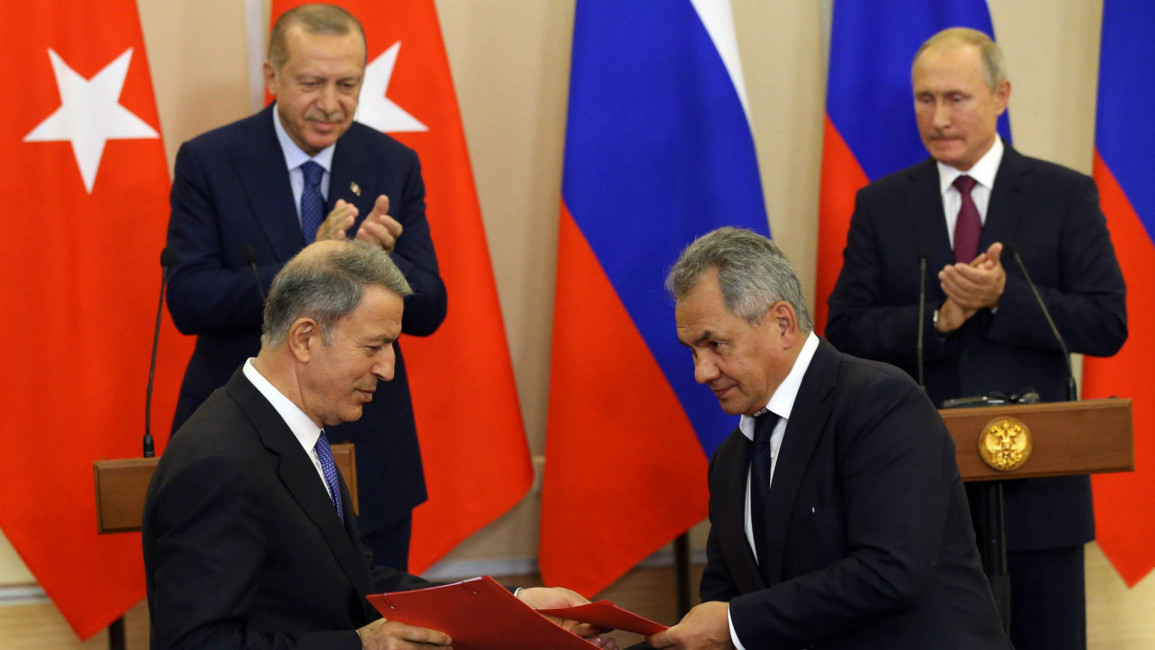Time limits on Russia-Turkey deal confirm fears of Idlib offensive
The ten-point plan for a ceasefire in Syria's Idlib province on Monday - agreed between Turkey and Russia this week - has been made public, highlighting the time-limited nature of the deal agreed between the two powers.
The Memorandum on Stabilisation of the Situation in Idlib was obtained exclusively by The National and published on Wednesday, after it was signed by Turkey's President Recep Tayyip Erdogan and his Russian counterpart Vladimir Putin in Sochi on Monday evening to prevent a Syrian regime offensive on the opposition province.
One of the main points of the agreement - in which both parties pledge to avoid any military actions in the region - is the proposed demilitarised zone 15-20km inside the de-escalation zone, however the exact area is to be determined in future discussions.
The current de-escalation is to be preserved under the authority of fortified Turkish observation posts.
The documents also calls for the restoration of transit routes on the roads between Aleppo and Latakia, and Aleppo and Hama, along the re-establishment of trade in the area.
The time-limit on the agreement - which was welcomed by both the Syrian and Iranian regimes - has confirmed fears that military action has been postponed, not averted.
It gives short-term deadlines to establish the full demilitarisation of the zone, which states mid-October as a cut-off point.
Twitter Post
|
The plan stipulates that: "All radical terrorist groups will be removed from the demilitarised zone by October 15."
In addition, it calls for all arms - including tanks, rocket launchers, artillery and mortars - to be removed from the demilitarised zone by 10 October.
As Turkey has no official authority to enforce these two elements of the plan, it is likely that militants belonging to Hayat Tahrir al-Sham (HTS) - who control large parts of the northwestern Syrian region - will insist on remaining in the territory.
This would give either Russia and Syria - or even Turkey - a green light to launch an offensive to wrench power out of the hands of the militant group.
"The two sides reiterated their determination to combat terrorism in Syria in all forms and manifestations," the memorandum concludes.
The UN on Tuesday gave its backing to the agreement.
Secretary General Antonio Guterres said the agreement to create a demilitarised zone in Idlib "should avert a full-scale military operation and provide reprieve for millions of civilians", a UN statement said.
It has been well publicised that an offensive launched in Syria's Idlib - now home to some 3 million people many of whom are already internally displaced - would off-set a severe humanitarian crisis.
Routine offensives on opposition-held areas by the Syrian regime - backed by Russia and Iran - show that Assad is willing to use brutal tactics, such as cluster bombs, barrel bombs, and chemical weapons, to terrorise civilians into surrender.



